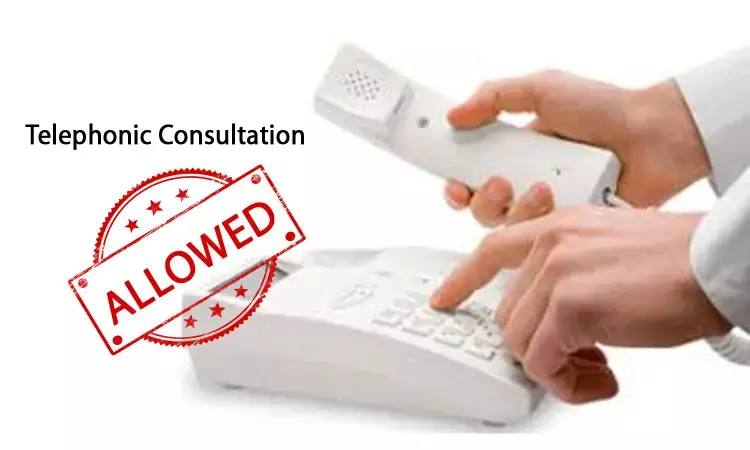- Home
- Medical news & Guidelines
- Anesthesiology
- Cardiology and CTVS
- Critical Care
- Dentistry
- Dermatology
- Diabetes and Endocrinology
- ENT
- Gastroenterology
- Medicine
- Nephrology
- Neurology
- Obstretics-Gynaecology
- Oncology
- Ophthalmology
- Orthopaedics
- Pediatrics-Neonatology
- Psychiatry
- Pulmonology
- Radiology
- Surgery
- Urology
- Laboratory Medicine
- Diet
- Nursing
- Paramedical
- Physiotherapy
- Health news
- Fact Check
- Bone Health Fact Check
- Brain Health Fact Check
- Cancer Related Fact Check
- Child Care Fact Check
- Dental and oral health fact check
- Diabetes and metabolic health fact check
- Diet and Nutrition Fact Check
- Eye and ENT Care Fact Check
- Fitness fact check
- Gut health fact check
- Heart health fact check
- Kidney health fact check
- Medical education fact check
- Men's health fact check
- Respiratory fact check
- Skin and hair care fact check
- Vaccine and Immunization fact check
- Women's health fact check
- AYUSH
- State News
- Andaman and Nicobar Islands
- Andhra Pradesh
- Arunachal Pradesh
- Assam
- Bihar
- Chandigarh
- Chattisgarh
- Dadra and Nagar Haveli
- Daman and Diu
- Delhi
- Goa
- Gujarat
- Haryana
- Himachal Pradesh
- Jammu & Kashmir
- Jharkhand
- Karnataka
- Kerala
- Ladakh
- Lakshadweep
- Madhya Pradesh
- Maharashtra
- Manipur
- Meghalaya
- Mizoram
- Nagaland
- Odisha
- Puducherry
- Punjab
- Rajasthan
- Sikkim
- Tamil Nadu
- Telangana
- Tripura
- Uttar Pradesh
- Uttrakhand
- West Bengal
- Medical Education
- Industry
Maharashtra Medical Council allows telephonic online consultations by doctors with strict riders, Details

"These online consultations have been restricted to minor ailments, routine follow-ups and patients whose medical history is known to doctors" the resolution specified.
The "resolution" issued by the MMC Registrar Sanjay Deshmukh clearly mentions:
"Resolved that RMP's would be allowed to give Telephonic Consultations and send prescriptions online to the concerned patient with undermentioned riders for the period of this emergency phase, till further notice by Govt. authorities of relaxing the advisories pertaining to COVID-19".
The RMP's would have to restrict giving online consultations and prescriptions only in the following conditions.
1) Minor ailments.
2) Routine follow-ups.
3) Only inpatient whose medical history is known to RMP.
4) No injectable to be prescribed.
5) No Prescription for clinically suspected case of COVID-19.
Read Also: Kolkata: One Nursing Home Sealed, 5 Doctors Reprimanded For Ignoring Mandatory Quarantine Order
In addition, the state medical council has directed the RMPs to follow the below-mentioned orders mandatorily while giving prescription to the patients.
1) The Prescription should be on letter-head of RMP with signature and details as per prescription format advised by MMC which in mentioned on MMC website. The photo of the prescription in PDF format should be sent to the patient.
2) RMP should mention as a header that the prescription is given on Telephonic Consultation.
3) RMP should note down short relevant history on letter-head.
4) No advice to be given in word format on any social media
5) RMP's can refer to any images sent by patient pertaining to their disease.
6) The prescription should be dated and a period of medication should be prominently written.
7) All records should be strictly preserved as per rules by RMP's.
Meanwhile, Dr Avinash Bhondwe, state president of Indian Medical Association, said the circular strongly advised against giving any prescription for COVID-19. "During this crisis, we have advised doctors to keep their clinics open only for emergency patients. Telephonic consultation can be allowed for routine/non-emergency patients," Dr Bhondwe told The Indian Express, adding, "Those who have flu-like symptoms can be attended separately to avoid overcrowding."
Many senior doctors and medical staff in the state have been ordered to work from home.
Telephonic and online consultations have been a subject of major debate in the Indian medical fraternity.
In 2018, the state HC had ruled that prescribing medicines to patients without diagnosis amounted to culpable negligence. "Prescription without diagnosis would amount to culpable negligence. This amounts to gross negligence from the point of the standard of care and recklessness and negligence, which is a tricky road to travel," the bench had stated adding, "An error in diagnosis could be negligence and covered under section 304 (A) of the Indian Penal Code. But this is a case of prescription without diagnosis and, therefore, culpable negligence."
Garima joined Medical Dialogues in 2017 and currently works as the Senior Editor. She oversees coverage of all healthcare topics, with a focus on medico-legal cases, regulatory updates, decisions by NMC, DCI and medical councils, developments in medical education, government policies, and news on medical and dental colleges. She holds a Master’s degree in Journalism and Mass Communication and can be contacted at editorial@medicaldialogues.in | 011-43720751.


